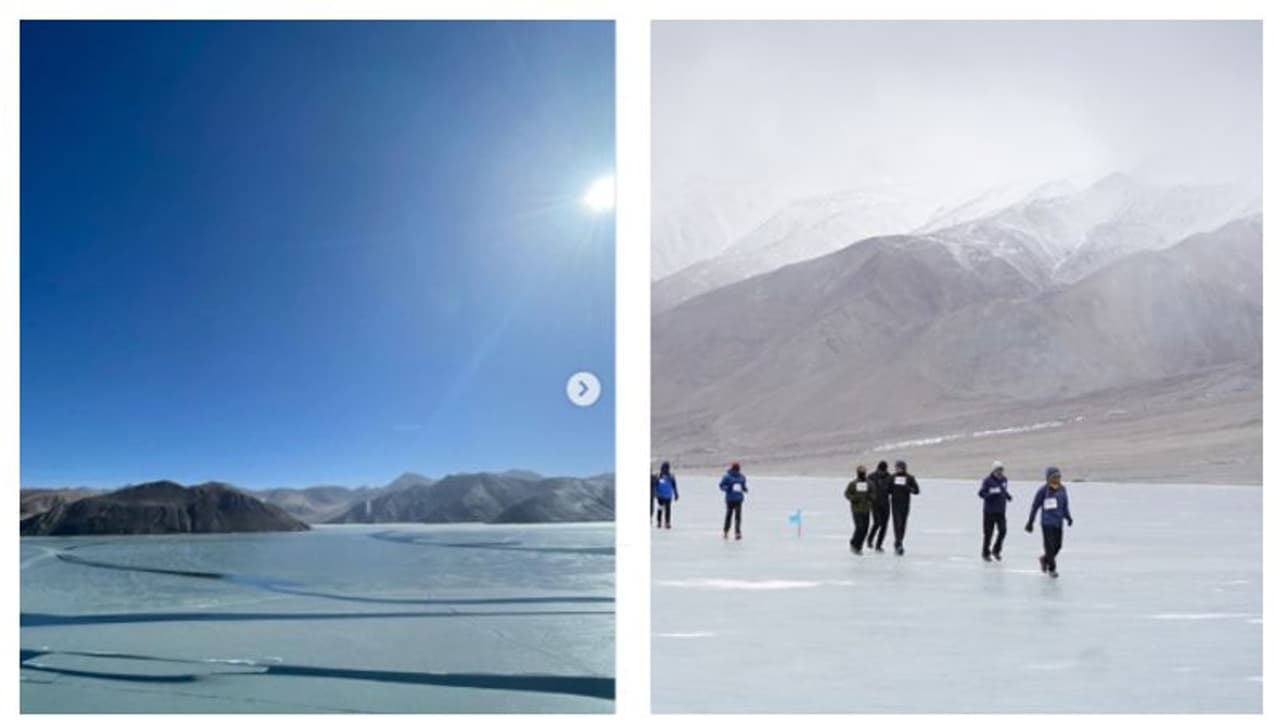Ladakh prepares for a unique marathon on frozen Pangong Lake, highlighting climate change's impact on Himalayan glaciers. With sustainability at its core, the event aims to unite runners in a global call for environmental action
Ladakh is set to host a remarkable event on February 20, as a marathon will take place on the frozen Pangong Lake, situated near the Line of Actual Control (LAC) with China. This marathon aims to shed light on the impact of climate change on Himalayan glaciers. Organized by the Adventure Sports Foundation of Ladakh (ASFL) in collaboration with the Tourism Department and Ladakh administration, the event marks the second edition of this unique endeavor, set at an elevation of nearly 4,350 meters above sea level.
In a commendable move towards sustainability, the organizers have pledged to conduct the event without the use of plastic water bottles or products that generate waste. They emphasize the power of sports to unite people across different backgrounds, especially in addressing crises like climate change.
Limited to just 50 runners of varying abilities, the Pangong frozen lake marathon promises an exhilarating experience for participants. Similar events, such as the Icebug Frozen Lake Marathon in Norway, have gained international recognition, attracting adventurers from around the globe. Running in winter presents its challenges, but the thrill of racing on a frozen lake captivates enthusiasts worldwide.
A delegation, led by Chamba Tsetan, the founder of Adventure Sports Federation of Ladakh, recently met with Ladakh's Lieutenant Governor, Brig BD Mishra (retd), to discuss the upcoming event. Tsetan highlighted the marathon's significance, which holds the distinction of being officially registered in the Guinness Book of World Records as the World’s Highest Frozen Lake Half Marathon. Beyond promoting winter tourism in Changthang, the marathon aims to advocate for sustainability on a global scale.
This year's marathon will feature both full and half marathon distances on the frozen Pangong Lake, following adequate acclimatization in Leh prior to the event. Safety measures include a medical team stationed at regular intervals, hot water points every 5 kilometers, and ambulance support throughout the event. Participants are advised to come prepared with essential gear such as warm jackets, head torches, and raincoats.
